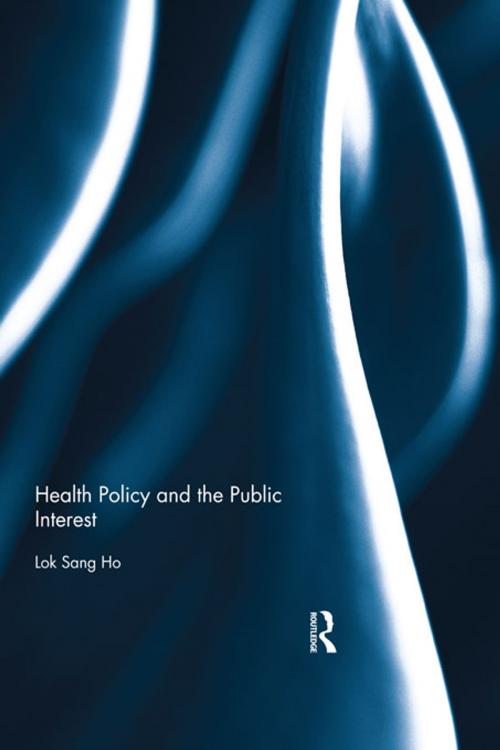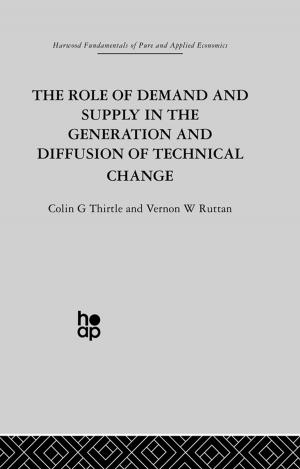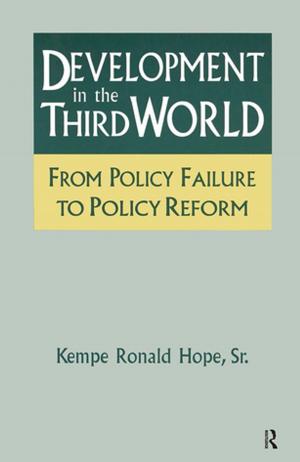| Author: | Lok-sang Ho | ISBN: | 9781136215025 |
| Publisher: | Taylor and Francis | Publication: | August 21, 2012 |
| Imprint: | Routledge | Language: | English |
| Author: | Lok-sang Ho |
| ISBN: | 9781136215025 |
| Publisher: | Taylor and Francis |
| Publication: | August 21, 2012 |
| Imprint: | Routledge |
| Language: | English |
This book is written with an acute awareness of the need for new insight to ensure (1) universal protection in basic healthcare; (2) providing choice; (3) efficient production and consumption of healthcare services; (4) financial sustainability of the healthcare system. Defining the public interest as the welfare of the "representative individual" with no vested interest who imagines himself to have equal chance of being anyone in society, this book explores alternative ways of finance and delivery, the optimal interface between the public healthcare sector and the private healthcare sector, and that between public insurance and private insurance.
The book includes a theoretical but non-technical section that distinguishes between the stock of health and functional health, proposes a utility maximizing/behavioural framework to explain behaviour and the role of health policy and investigates the nature of risk and alternative insurance mechanisms. The book illustrates with a number of country studies, covering a large range of healthcare systems from the American and the European systems to various Asian systems as well as those of Australia and New Zealand. The survey of country experiences reinforces the theoretical conclusions about the role of the public healthcare sector and social insurance and that of the private market.
The book highlights the importance of and the workability of "pricing right" and "capping right": pricing standard or basic healthcare services at the right price can contain both demand-side and supply-side moral hazard and lead to more efficient production and consumption of healthcare services; capping annual eligible healthcare expenses will provide effective protection against financial risks. The proposal of lifetime healthcare supplement offers greater choice. Private caregivers and insurers supplement the public healthcare system by offering more choices and premium services, as well as additional protection.
This book is written with an acute awareness of the need for new insight to ensure (1) universal protection in basic healthcare; (2) providing choice; (3) efficient production and consumption of healthcare services; (4) financial sustainability of the healthcare system. Defining the public interest as the welfare of the "representative individual" with no vested interest who imagines himself to have equal chance of being anyone in society, this book explores alternative ways of finance and delivery, the optimal interface between the public healthcare sector and the private healthcare sector, and that between public insurance and private insurance.
The book includes a theoretical but non-technical section that distinguishes between the stock of health and functional health, proposes a utility maximizing/behavioural framework to explain behaviour and the role of health policy and investigates the nature of risk and alternative insurance mechanisms. The book illustrates with a number of country studies, covering a large range of healthcare systems from the American and the European systems to various Asian systems as well as those of Australia and New Zealand. The survey of country experiences reinforces the theoretical conclusions about the role of the public healthcare sector and social insurance and that of the private market.
The book highlights the importance of and the workability of "pricing right" and "capping right": pricing standard or basic healthcare services at the right price can contain both demand-side and supply-side moral hazard and lead to more efficient production and consumption of healthcare services; capping annual eligible healthcare expenses will provide effective protection against financial risks. The proposal of lifetime healthcare supplement offers greater choice. Private caregivers and insurers supplement the public healthcare system by offering more choices and premium services, as well as additional protection.















